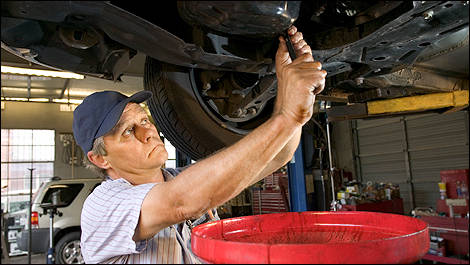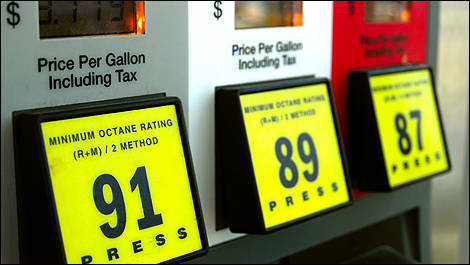As reported by Ford
Dearborne, Mich. – They’ve been around awhile – a snippet of advice here, an old adage there. They’re the guidelines that are supposed to help keep cars running in top condition. Problem is, most of them aren’t based in fact – or they’re just plain outdated.
Ford decided to debunk a few of the most popular maintenance myths, including the following:
MYTH: Cars need oil changes every three months or 3,000 miles.
False: That used to be true, but not with newer cars. Because of synthetic oils that don’t break down as quickly, consumers actually don’t need oil changes as often – more like every 5,000 to 7,500 miles. (There may be two recommendations for oil-change intervals: one for normal driving and one for hard use. Check your maintenance guide to be sure.)
SAVE: Either way, there’s a considerable savings here: Let’s say you’re an average consumer who drives 12,000 miles a year, which means you would need about four oil changes a year under the old formula. With the new extended mileage, consumers need only about two oil changes a year, cutting their bill for oil changes in half – you could pocket upward of $50 a year or $650 in the lifetime of your car and do something to help the environment by saving oil.
MYTH: You need to let your vehicle engine warm up in cold weather.
False: Your vehicle’s engine only needs a warm-up period of about 10 seconds – you’re actually the only one who may feel chilly. The engine warms up while you drive. Running your car any longer beforehand is just a waste of gas.
SAVE: Depending on engine size, temperature and other variables, modern cars can use about a third of a gallon of gas per hour while idling. By giving up that 10-minute idle every weekday morning, you could save more than a gallon a month – $32 a year or $416 over the life of the vehicle.
MYTH: Premium gas is a treat for your car.
False: Unless your vehicle is specifically tailored to take advantage of the higher octane level in the fuel, you’re wasting your money. Go by what is recommended in your owner’s manual and leave it at that.
SAVE: At current gas prices, drivers may save up to $150 a year by opting for unleaded gas instead of premium.
Dearborne, Mich. – They’ve been around awhile – a snippet of advice here, an old adage there. They’re the guidelines that are supposed to help keep cars running in top condition. Problem is, most of them aren’t based in fact – or they’re just plain outdated.
Ford decided to debunk a few of the most popular maintenance myths, including the following:
 |
| photo: Jupiter Images |
MYTH: Cars need oil changes every three months or 3,000 miles.
False: That used to be true, but not with newer cars. Because of synthetic oils that don’t break down as quickly, consumers actually don’t need oil changes as often – more like every 5,000 to 7,500 miles. (There may be two recommendations for oil-change intervals: one for normal driving and one for hard use. Check your maintenance guide to be sure.)
SAVE: Either way, there’s a considerable savings here: Let’s say you’re an average consumer who drives 12,000 miles a year, which means you would need about four oil changes a year under the old formula. With the new extended mileage, consumers need only about two oil changes a year, cutting their bill for oil changes in half – you could pocket upward of $50 a year or $650 in the lifetime of your car and do something to help the environment by saving oil.
MYTH: You need to let your vehicle engine warm up in cold weather.
False: Your vehicle’s engine only needs a warm-up period of about 10 seconds – you’re actually the only one who may feel chilly. The engine warms up while you drive. Running your car any longer beforehand is just a waste of gas.
SAVE: Depending on engine size, temperature and other variables, modern cars can use about a third of a gallon of gas per hour while idling. By giving up that 10-minute idle every weekday morning, you could save more than a gallon a month – $32 a year or $416 over the life of the vehicle.
MYTH: Premium gas is a treat for your car.
False: Unless your vehicle is specifically tailored to take advantage of the higher octane level in the fuel, you’re wasting your money. Go by what is recommended in your owner’s manual and leave it at that.
SAVE: At current gas prices, drivers may save up to $150 a year by opting for unleaded gas instead of premium.
 |
| photo: Jupiter Images |


